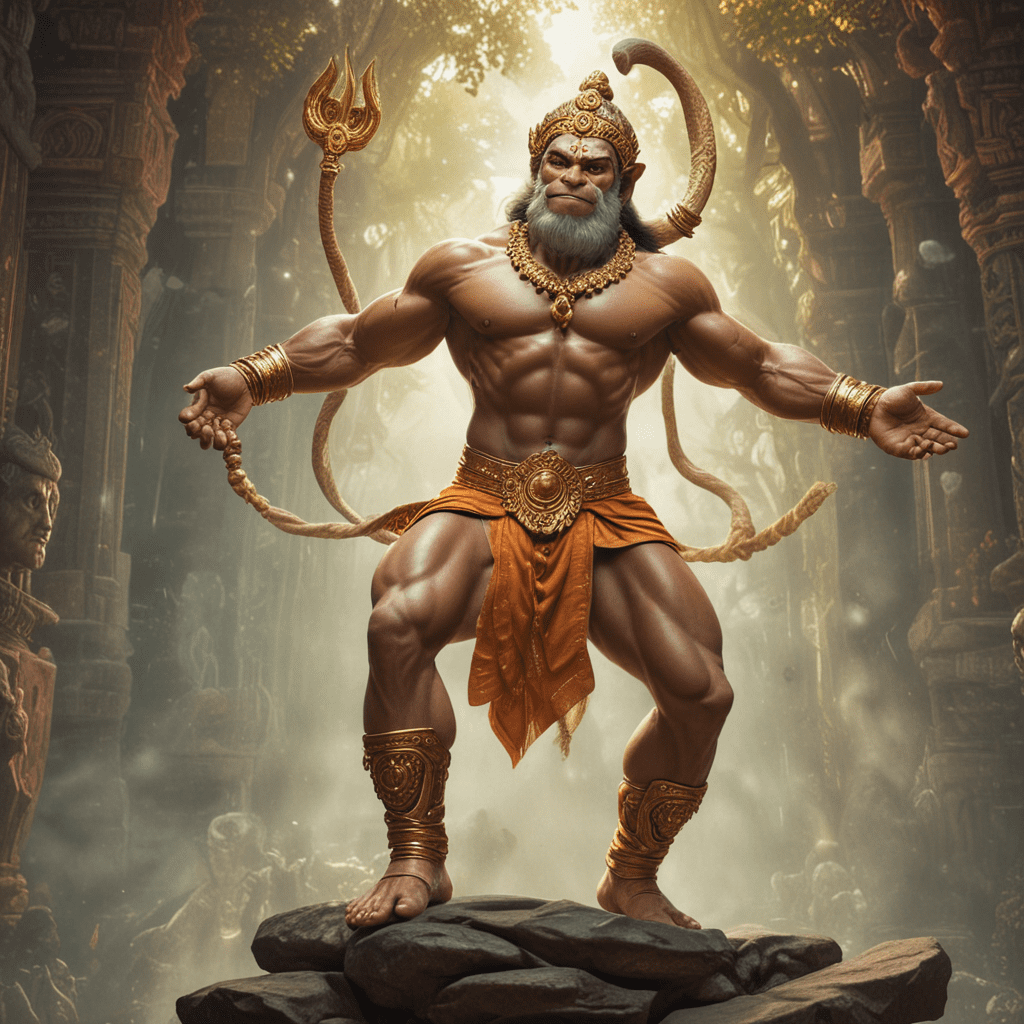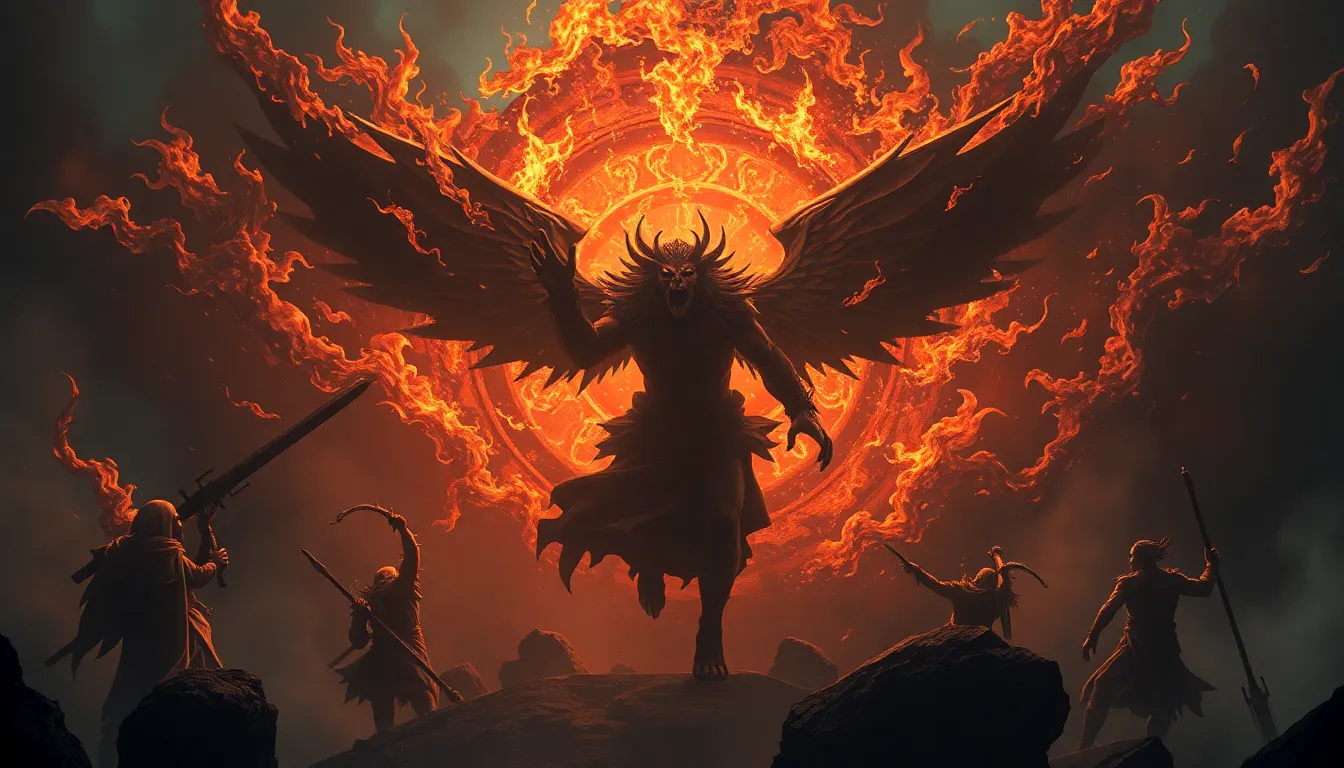The Myth of Hanuman: The Loyal Devotee of Rama
Introduction
Hanuman, the heroic primate, is one of the most revered and well-known figures from the ancient Indian epic, the Ramayana. His unwavering loyalty, exceptional strength, and unwavering devotion to Lord Rama have immortalized him in Hindu mythology and made him an icon of inspiration across generations.
Hanuman's Origins and Divine Birth
Hanuman is believed to be the son of the wind god, Vayu, and a celestial nymph, Anjana. According to legend, he was born with extraordinary powers and unparalleled strength. His birth was prophesied to aid Lord Vishnu's incarnation, Rama, in his quest to rescue his beloved wife, Sita, from the demon king Ravana.
Hanuman's Early Years
In his early years, Hanuman exhibited an extraordinary strength and playful nature. He was known for his agility, speed, and ability to leap great distances. His encounter with Surya, the sun god, resulted in Hanuman acquiring the gift of knowledge and wisdom.
Hanuman’s Strength and Abilities
Hanuman was renowned for his incredible strength, both physical and spiritual. He possessed agility and speed, and his invulnerability to most forms of attack made him a formidable opponent. Hanuman's ability to change shape at will and communicate with animals added to his versatility and effectiveness.
Hanuman’s Wisdom and Humility
Despite his immense power, Hanuman was known for his wisdom and humility. He had a deep reverence for the divine, and his unwavering faith in Lord Rama guided his every action. Hanuman's humility extended to his interactions with mortals, where he showed compassion and understanding.
Hanuman’s Legacy in Hinduism
Hanuman is widely worshipped as a deity in Hinduism, symbolizing strength and devotion. The Hanuman Chalisa, a sacred text dedicated to his praise, is recited by millions of devotees daily. His image is ubiquitous in temples, art, and popular culture, serving as a constant reminder of his virtues.
Hanuman in Popular Culture
The Hanuman myth has been depicted in numerous literary, artistic, and cinematic works throughout history. From the ancient Ramayana to modern-day adaptations, Hanuman's story continues to captivate audiences. His popularity extends beyond Hinduism, with many non-Hindus admiring his heroic qualities and unwavering loyalty.
The Myth’s Enduring Significance
The myth of Hanuman represents the timeless values of loyalty, devotion, and strength. His story teaches us to embrace our own unique abilities and use them for the greater good. Hanuman's unwavering commitment to Lord Rama exemplifies the importance of unwavering faith and dedication.
Conclusion
The myth of Hanuman is an enduring testament to the power of loyalty, devotion, and unwavering strength. His story has inspired generations of Hindus and non-Hindus alike, reminding us of the importance of these virtues in our own lives. Hanuman's legacy as a heroic figure in Hindu mythology will undoubtedly continue to endure for centuries to come.
FAQs
-
What is Hanuman's significance in Hinduism?
Hanuman is worshipped as a deity and a symbol of strength, devotion, and wisdom in Hinduism. -
What is the Hanuman Chalisa?
The Hanuman Chalisa is a sacred text dedicated to Hanuman's praise, recited by millions of devotees daily. -
Why is Hanuman depicted with a monkey face?
Hanuman is often depicted with a monkey face due to a curse he received from Rishi Durvasa. However, his monkey features also symbolize his agility, playfulness, and mischievous nature.
-
Is Hanuman immortal?
In Hindu mythology, Hanuman is believed to be immortal and is said to live in the Himalayas. -
What are Hanuman's powers?
Hanuman possesses immense strength, agility, speed, shape-shifting abilities, and invulnerability to most forms of attack.




